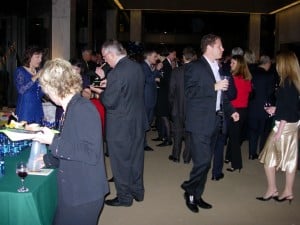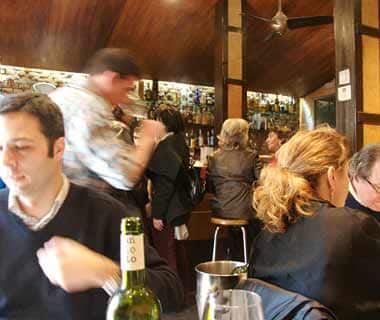Archive for March, 2010
Mind Your P’s and Q’s – Wine Tastings at Embassies

Embassy of France – TasteDC Beaujolais Celebration 2004
Click Here for Photos from TasteDC’s First Embassy Wine Tasting in 1998
Living in Washington, D.C. has many benefits, especially the fact that almost every country in the world has an Embassy in our city – and many either organize or allow for events such as wine tastings. I’m not exactly sure which was my first Embassy wine tasting experience, but I do remember sometime in the 90’s attending an “Opera and Wine Tasting” at the Spanish Embassy..or was that the Spanish Ambassador’s Residence? What I remember is that it was very dressy, the Ambassador was not there, and the opera singer kept forgetting the words to the opera..oh, and there was plenty of wine to sample! Since that time, I personally have organized over 40 events at Embassies through my company TasteDC and I’ve learned quite a bit about the do;s and dont’s of organizing an event at an Embassy?
1) Choose Wines from a Variety of Growing Regions in the Country
This seems like common sense, but unless I’m organizing a region specific event like the Champagne event or the Beaujolais Nouveau events I’ve held at the French Embassy, it’s best to have a broad cross section of wines from various regions.
2) Hire a Caterer Who Understands the Cuisine and Preparation
I’ll tread on this one lightly – I once hired a French caterer to prepare the cheese fondue at a Swiss Embassy Chocolate, Cheese and Wine Event..and the fondue clumped together! Wow, did the Embassy official who looked at the mess get upset – it was also very hard to get on people’s plates, oh well. It also took us almost 2 hours to figure out how to turn on their oven in the basement kitchen, it needed an old-fashioned match to light the pilot..I could go on and on about mis-haps with Embassy kitchens (food ending up in the purses of Embassy staff, chefs not showing up,etc..), but I also want to include that most of the time things have worked out well. If you’ve ever organized a large event, things will go wrong, that’s to be expected.
3) Be Ready to Bear the Financial Risk
After 10 years of organizing these events for 200+ people, I just decided that it took too much energy to continue to run these hectic events – not only are they time-consuming and difficult, but I was at financial risk. Normally, an embassy charges some kind of rental fee, and of course, the caterer, food, wine and staff are all fixed costs, so many events don’t even break-even until 100 tickets are sold. When I first began holding events at embassies in 1998, there were very few organizations doing so for profit. Of course, once my business took off, every other event promoter in DC began to contact the embassies and do the same or similar events. Sales declined, prices came down, and frankly the amount of sweat and effort it took to make a successful event just didn’t make sense.
OK, this was fun going down memory lane..I think I’ll write more about Embassy tastings in the D.C. area – if you are curious about what it’s like to work with an Embassy, leave me a comment or email me – oh, here are some more photos of an Austrian wine tasting at the Austrian Embassy – – Cheers!
Charlie “I Drink on the Job” Adler






